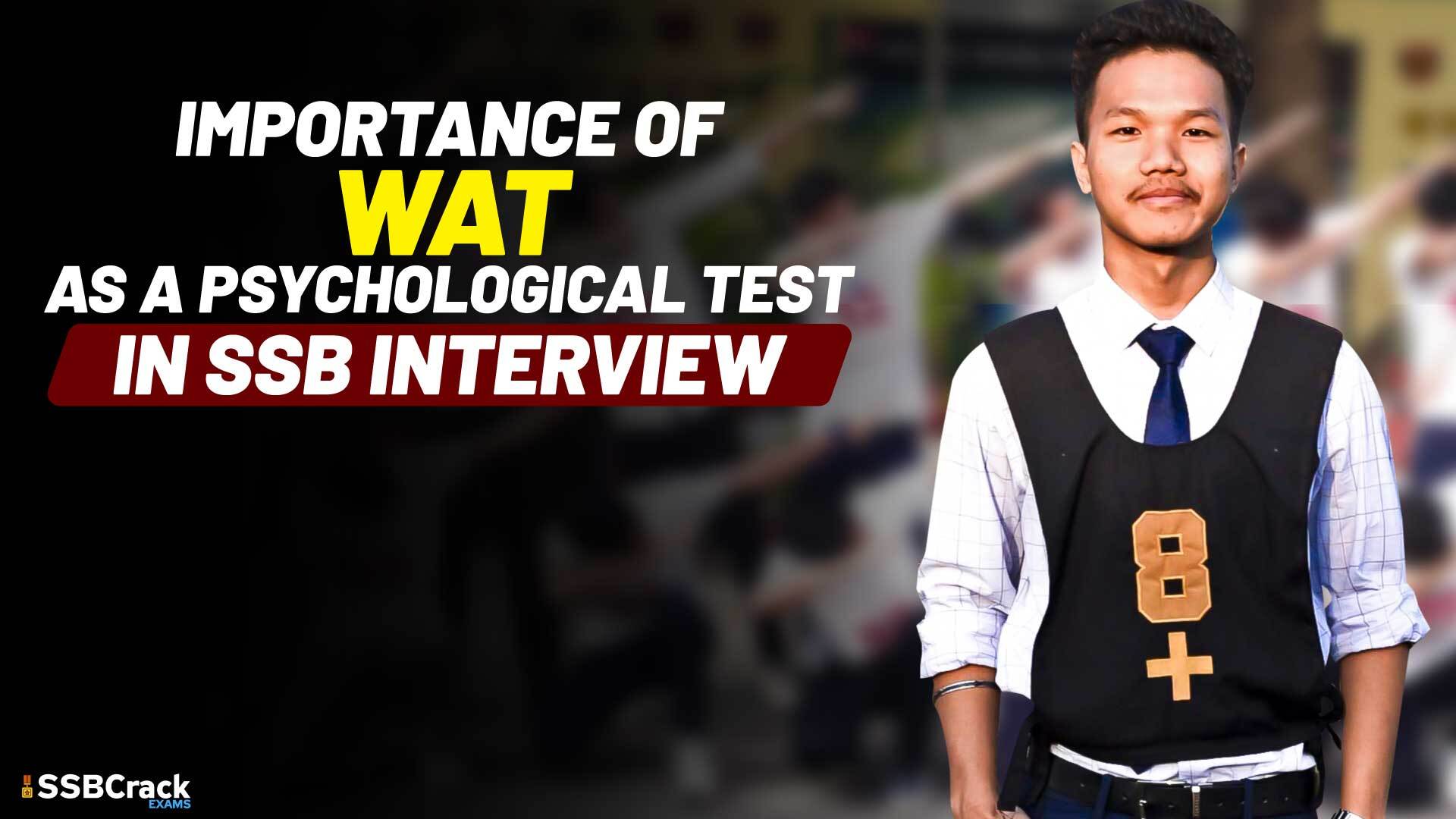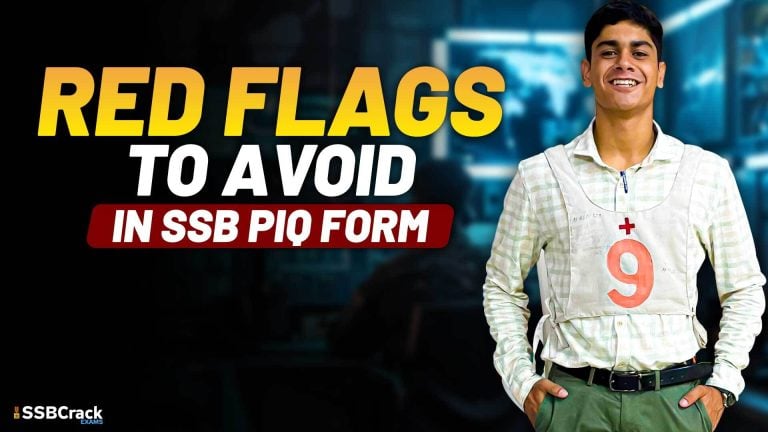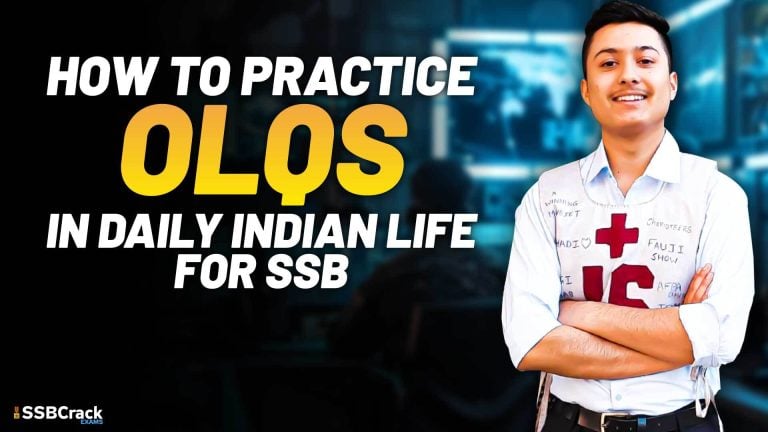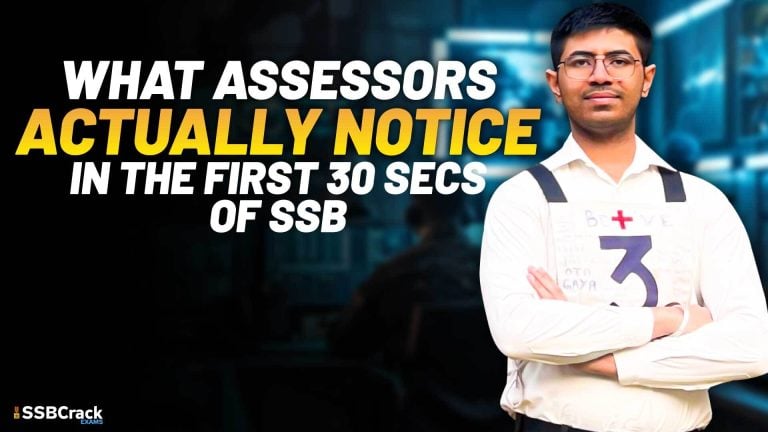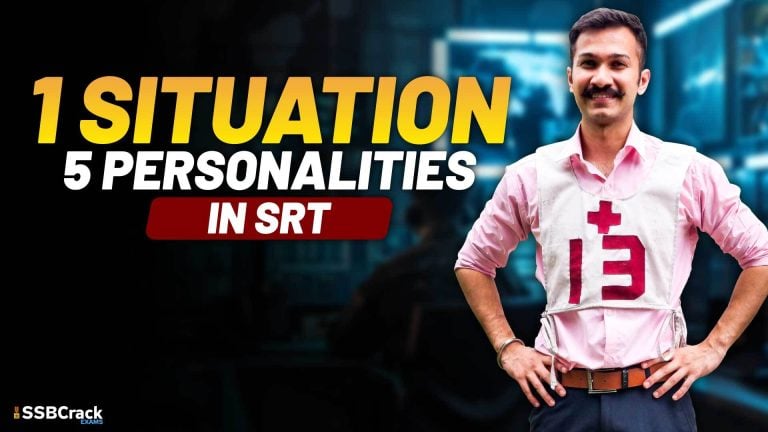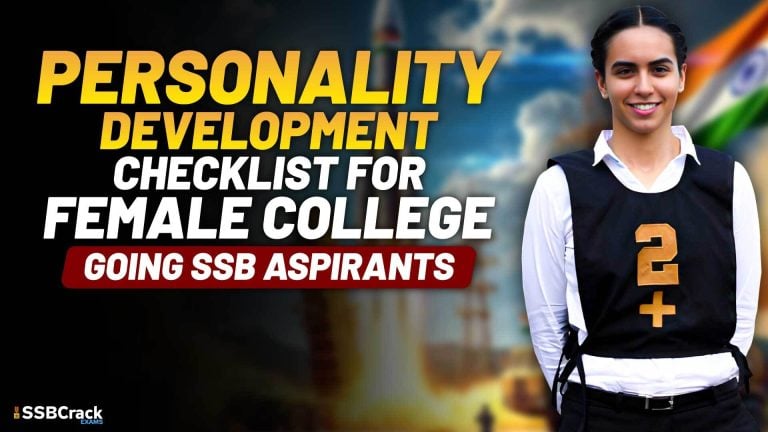Word Association Test (WAT) is a psychological test used in the Service Selection Board (SSB) interview process, particularly in the psychological testing stage. WAT holds significant importance as a tool for assessing various cognitive and psychological attributes of candidates aspiring to join the armed forces. Here are several reasons highlighting the importance of WAT in the SSB interview:
- Language Proficiency:
- WAT assesses the candidate’s language proficiency and command over vocabulary. Effective communication skills are crucial for officers, and WAT provides insights into the candidate’s ability to express thoughts clearly and concisely.
- Spontaneity and Quick Thinking:
- WAT requires candidates to respond to words rapidly, promoting spontaneity and quick thinking. This reflects a candidate’s mental agility, a quality essential for making prompt decisions in dynamic and fast-paced military environments.
- Cognitive Flexibility:
- The test assesses cognitive flexibility by examining how candidates associate words. Cognitive flexibility is vital for military officers who need to adapt to rapidly changing situations and think on their feet.
- Understanding of Social and Cultural Context:
- WAT responses may reveal a candidate’s understanding of social and cultural nuances. This is important for officers who must operate in diverse settings, fostering positive relationships with personnel from various backgrounds.
- Emotional Intelligence Assessment:
- WAT responses may provide clues about a candidate’s emotional intelligence. This includes the ability to recognize and manage emotions, which is crucial for effective leadership and interpersonal relationships in a military context.
- Personality Traits Evaluation:
- The associations made in WAT can offer insights into a candidate’s personality traits. Assessors look for qualities such as confidence, assertiveness, adaptability, and resilience, all of which are vital for military officers.
- Stress and Pressure Handling:
- WAT is often conducted under time constraints, simulating stress and pressure. This provides assessors with a glimpse of how candidates handle pressure, an essential skill for officers in high-stakes situations.
- Consistency in Responses:
- Assessors analyze the consistency of responses across multiple words to identify patterns. Consistency in responses can reveal stable personality traits and attributes that align with the values and requirements of the armed forces.
- Value System Alignment:
- WAT responses may indirectly reflect a candidate’s value system. This is crucial in determining whether a candidate’s values align with the ethos of the armed forces, including principles of integrity, duty, and service.
- Unconscious Insights:
- As a projective test, WAT taps into the unconscious mind, revealing insights that candidates may not be consciously aware of. This provides a more comprehensive understanding of their thought processes and attitudes.
- Assessment of Creativity:
- WAT responses may indicate a candidate’s creative thinking abilities. Creative problem-solving is valuable for officers who may encounter novel challenges in their roles.
Conclusion:
In conclusion, WAT is a valuable psychological test in the SSB interview process because it assesses a wide range of cognitive, linguistic, and psychological attributes that are crucial for success in military leadership roles. The test provides assessors with a holistic understanding of a candidate’s capabilities, allowing for a thorough evaluation of their suitability for a career as an officer in the armed forces.
